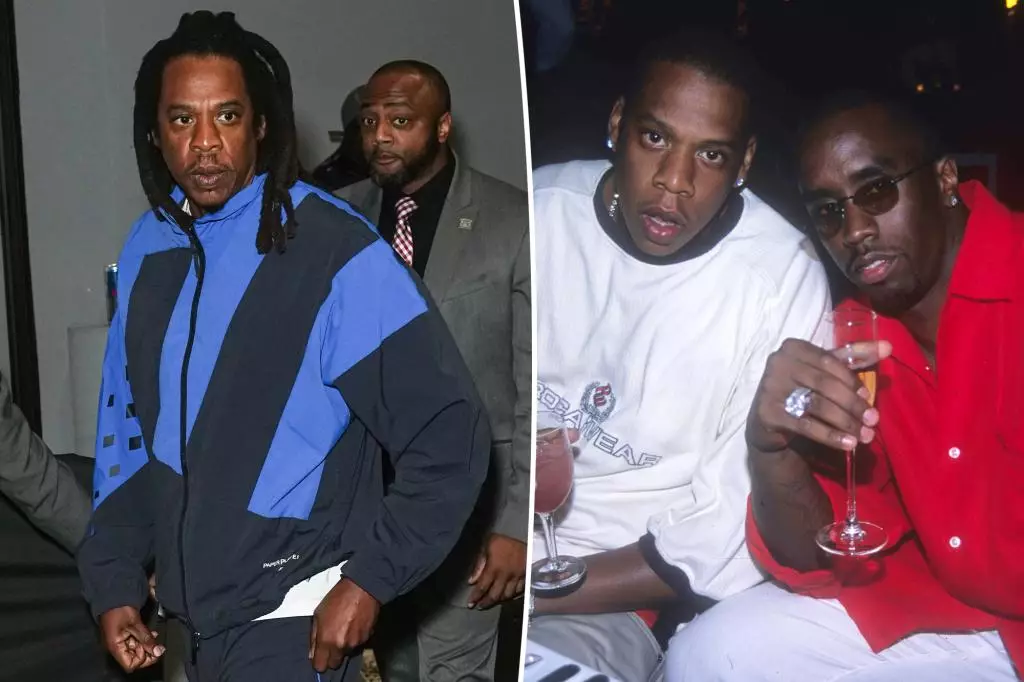In a recent ruling by Judge Analisa Torres, a significant development has emerged in the ongoing legal proceedings against hip-hop icons Jay-Z and Sean “Diddy” Combs. The judge has permitted the plaintiff, who seeks anonymity as “Jane Doe,” to advance her case against both men. This decision points to the importance of protecting the identities of individuals who come forward with serious allegations of abuse, particularly in cases involving high-profile celebrities. The ruling illustrates the complexities within the judicial approach to sensitive matters, especially those involving sexual assault, where the trauma of the alleged victim is at the forefront.
Judge Torres elaborated on her decision, underscoring that the plaintiff’s vulnerabilities must be considered. Allegations of depression, post-traumatic stress disorder (PTSD), and other mental health issues related to the trauma have contributed to her need for privacy during these proceedings. The decision to allow the plaintiff to remain unnamed until this point asserts a commitment to safeguarding her emotional wellbeing while navigating the challenges of litigation against such powerful individuals.
In the same ruling, Judge Torres critically examined the approach taken by Jay-Z’s attorney, Alex Spiro – noting the “combative motions” and inflammatory rhetoric that characterized their position. The court expressed its disapproval of what it views as a wasteful use of judicial resources. This critique not only reflects concerns about courtroom decorum but also emphasizes the ramifications of aggressive legal strategies that can derail the substantive progress of a case. Such tactics may ultimately alienate jurors and the public, not to mention backfire in front of a judge willing to prioritize integrity in proceedings. Torres’ comments serve as a reminder that legal battles, especially those linked to sensitive issues, require a level of decorum that respects the participants’ dignity.
The allegations brought forth by the plaintiff detail a traumatic experience that took place during the 2000 MTV Video Music Awards afterparty. According to court documents, the victim alleges she was just 13 years old at the time of the incident. The gravity of the claims – that both Jay-Z and Combs participated in, or witnessed, the assault – casts a long shadow over their public personas and raises significant questions about power dynamics and accountability in the music industry.
The details provided by the plaintiff evoke both concern and outrage. The story describes an environment where the young girl was allegedly incapacitated by a drink before being subjected to assault. This scenario uncovers deeper systemic issues regarding the treatment and safety of young individuals in celebrity culture. The repercussions of such allegations extend beyond the courtroom; they challenge the cultural narrative surrounding sexual assault and the need to support survivors in a society that has historically sidelined their voices.
As the lawsuit progresses, both Jay-Z and Diddy find themselves under intense scrutiny, not just from the legal system but also from public opinion. Jay-Z has vocally denied the allegations, citing them as “heinous” and condemning the motives behind the lawsuit. Meanwhile, Diddy is navigating his own tumultuous legal circumstances, facing separate charges related to sex trafficking. These concurrent legal issues raise questions about the accountability of public figures and the extent to which they can evade the consequences of their actions, especially when they are accused of grave misconduct.
Such high-profile cases often serve as flashpoints in broader discussions about accountability in the entertainment industry, particularly regarding allegations of sexual misconduct. As the case unfolds, it will undoubtedly evoke reactions from various stakeholders, including advocates for the victims, the press, and the general public, all of whom have vested interests in the outcomes.
As this case continues, it stands at the intersection of justice and media influence. It is crucial for the legal process to operate fairly, balancing the rights of the plaintiff and defendants alike. High-profile lawsuits such as this become focal points for discussions on the treatment of victims, societal attitudes toward sexual assault, and the responsibilities of public figures. As the judicial process progresses, ongoing monitoring and public discourse will play a vital role in shaping the conversation around these sensitive and pertinent issues. The court’s decisions will not only impact the lives of the individuals directly involved but have far-reaching implications for broader cultural and legal landscapes moving forward.


Leave a Reply